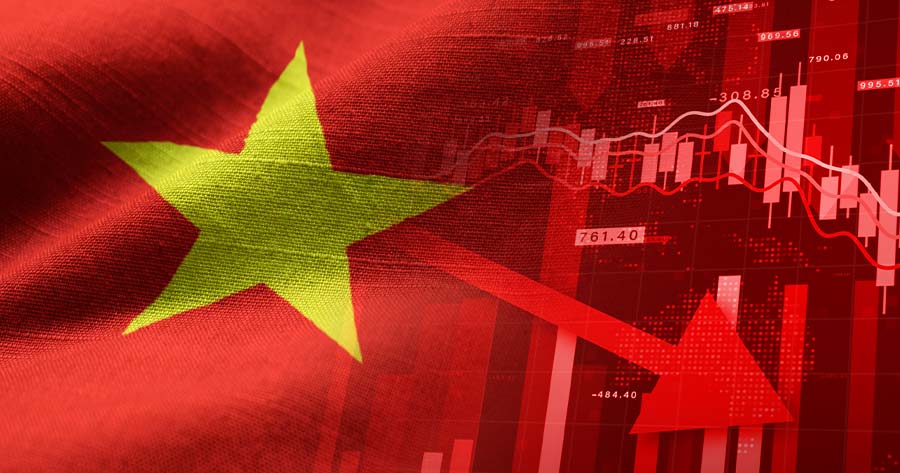Vietnam’s strategic efforts to cultivate trade relations with the U.S. by reducing duties on imports and committing to purchase more American goods fell short, as the country faces a staggering 46% tariff from the Trump administration.
The Ho Chi Minh Stock Index (VNI) fell 6.38% on Thursday in reflection of the market’s reaction to the tariffs.
The tariff, one of the highest under the “reciprocal” framework targeting significant offenders by U.S. measures of trade barriers, could severely challenge Vietnam’s target of achieving at least 8% economic growth this year.
The U.S., Vietnam’s foremost export market, imposes these levies amidst broader tariffs aimed at correcting trade imbalances. Ruchir Desai, fund manager at Asia Frontier Capital in Hong Kong, warns that if such tariffs persist, Vietnam’s GDP growth forecasts may see downward revisions, significantly impacting market sentiment due to the nation’s heavy reliance on exports.
Vietnam, positioned as an alternative to China in manufacturing electronics and basic semiconductors, has attracted major players like Intel, Apple suppliers, and Samsung Electronics.
The ASEAN country’s trade surplus with the U.S. was $123.5 billion last year, ranking it third behind China and Mexico. In a bid to mitigate trade tensions, Vietnam recently cut tariffs on imports like liquefied natural gas and various agricultural products.
Despite these gestures, President Donald Trump announced minimum 10% tariffs on all U.S. exporters, with additional duties on about 60 countries harboring significant trade imbalances.
Vietnam’s country-specific tariff is set at 90%, reflecting the seriousness of perceived trade hurdles as highlighted in a USTR report, which includes Vietnam’s import restrictions and technical barriers as significant challenges.
In response, Vietnam is dispatching a high-level delegation to the United States, headed by Deputy Prime Minister Ho Duc Phoc, to engage in further trade discussions. The move underscores the government’s urgency, with executives from Vietnam Airlines, Vietjet Aviation, and VinaCapital Group joining the mission ahead of an official announcement by Trump.
Vietnam’s dependence on trade is notable, with export activities accounting for about 90% of its GDP. The recent announcements highlight fears of global trade disruption, as supply chains may not adapt rapidly. However, Pham Luu Hung, chief economist at SSI Securities, suggests ongoing negotiations could soften the impact of tariffs, potentially leading to positive developments.
During a meeting with U.S. Ambassador Marc Knapper, Vietnam’s Communist Party chief To Lam reiterated a commitment to increase purchases of U.S. products, particularly in agriculture, LNG, and high-tech sectors, aiming for progress in easing tariffs and enhancing bilateral trade.





